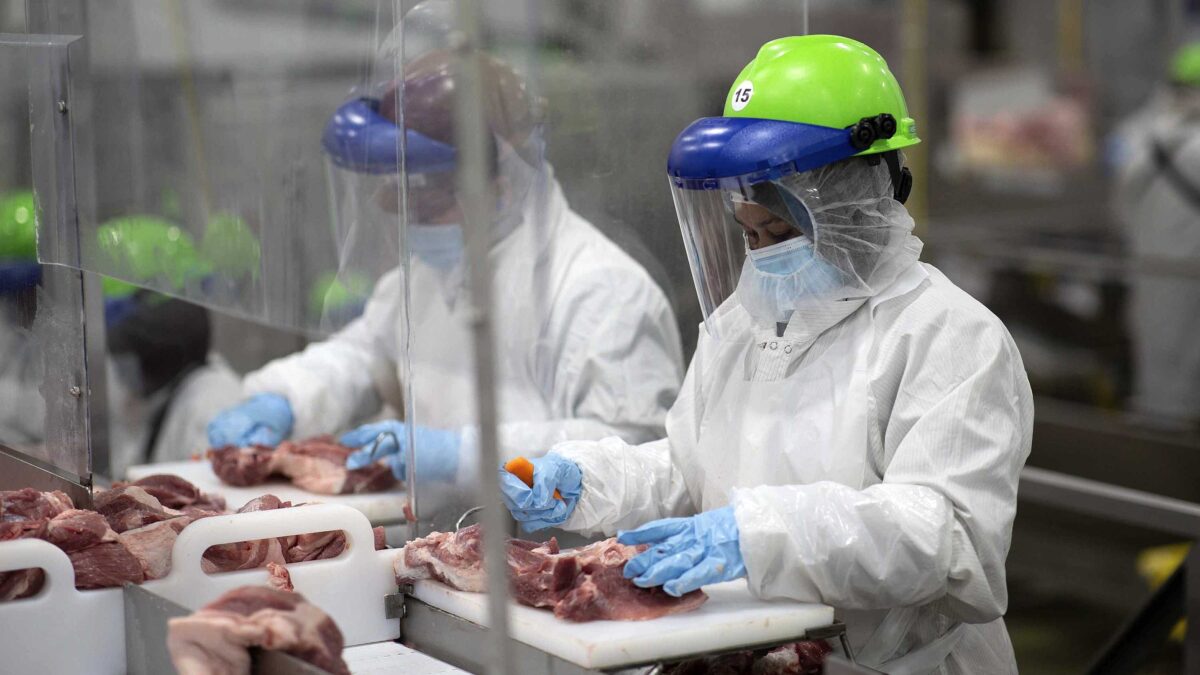China has been buying up agricultural land in the United States for years, a trend that a U.S. lawmaker said must end in order to safeguard the U.S. food supply chain.
For this reason, Rep. Dan Newhouse (R-Wash.) introduced an amendment to the House’s fiscal year 2022 agriculture appropriations legislation (H.R.4356) in June. In a recent interview with NTD, the lawmaker explained what his amendment would do.
“China, frankly, is an adversary. We want to make sure that we control our food supply. I think it’s a natural, important, national security issue,” Newhouse said.
The amendment was adopted unanimously by the House Appropriations Committee on June 30. On July 29, the House approved the agriculture appropriations legislation as part of a package of seven 2022 spending measures (H.R.4502).
If enacted, the amendment would empower the secretary of agriculture to prohibit the purchase of agricultural land in the United States by companies owned by China, Iran, North Korea, and Russia, according to the language of the legislation. In China, there’s no distinction between private businesses and state-owned companies, since the Chinese Communist Party can exercise control over private firms through Chinese law or through embedded Party cells.
The measure also would prohibit the four countries from taking part in programs administered by the secretary of agriculture.
Newhouse said the current language of his amendment has been changed. He had initially named only China (pdf), but not the three other nations.
“During the rules process, it was changed somewhat by the Democrats to include several other countries,” he said. “But the fact remains that communist China is the threat. They’re the ones that are buying up most of the assets of that list of nefarious countries that are not our friends. And that’s where the focus should be.”
Chinese firms have been buying U.S. agricultural land for the past decade. According to data from the U.S. Department of Agriculture (USDA), Chinese investors controlled 191,652 acres in the United States worth about $1.86 million before the start of 2020, compared to 13,720 acres, worth $81,425, as of the end of 2010.

Buying Companies
One of the deals involved China’s meat processor WH Group, which purchased Virginia-based Smithfield Foods for $4.7 billion in 2013. With the purchase, the Chinese company now owns the largest pork producer in the United States, as well as 146,000 acres of prime farmland.
Another deal involved two Chinese entrepreneurs who bought a 22,000-acre ranch in Utah in 2011 to grow alfalfa and export it to China.
China’s agricultural investments haven’t been limited to the United States. According to a 2018 USDA report (pdf), China’s direct overseas investments in agriculture, forestry, and fishing jumped to $3.3 billion in 2016 from $300 million in 2009. The report found that these overseas investments were closely aligned with the communist regime’s policies, including the “Belt and Road Initiative” (BRI).
“Chinese officials have ambitious strategic plans for agricultural investments to reshape patterns of agricultural trade and increase China’s influence in global markets,” the report reads.
Beijing launched the BRI in 2013 to develop Beijing-centered land and maritime trade routes in an effort to boost the country’s geopolitical influence.
Chinese overseas investments also include buying and investing in foreign agribusinesses. According to the report, WH Group acquired California-based pork processor Clougherty Packing and a meat and poultry processing company in Poland in 2017.
Another Chinese firm, Brights Food, invested in seven foreign companies between 2010 and 2016, according to the report. These companies included a dairy firm in New Zealand, a yogurt company in Australia, a wine business in France, a cereal company in the UK, and an olive oil company in Italy.
Newhouse said he took “proactive” action with his amendment to address the challenge posed by Chinese investments before “the problem gets so big that we can’t correct it.”
“We see the trend,” he said. “We see the number of acres and companies that have been purchased by the communist government of China. And we should stop it now.”

No comments:
Post a Comment